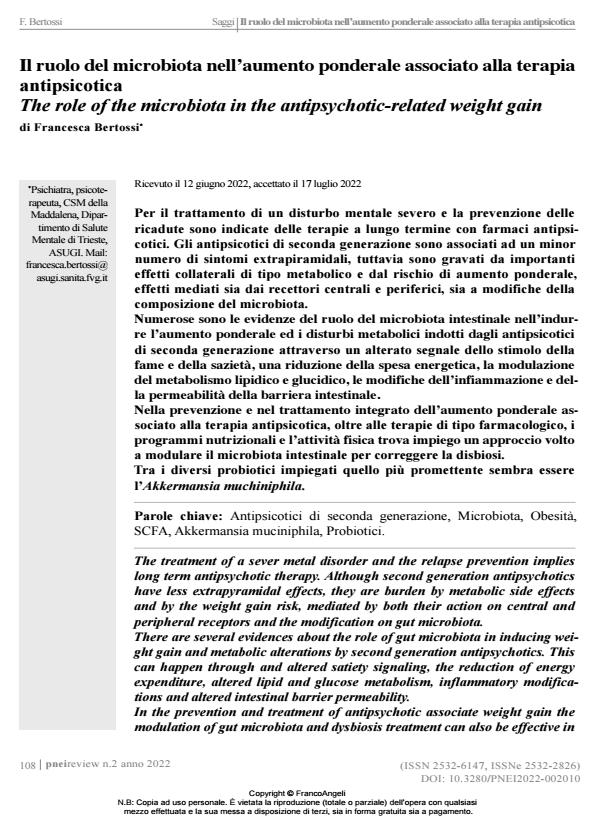The role of the microbiota in the antipsychotic-related weight gain
Journal title PNEI REVIEW
Author/s Francesca Bertossi
Publishing Year 2022 Issue 2022/2
Language Italian Pages 15 P. 108-122 File size 117 KB
DOI 10.3280/PNEI2022-002010
DOI is like a bar code for intellectual property: to have more infomation
click here
Below, you can see the article first page
If you want to buy this article in PDF format, you can do it, following the instructions to buy download credits

FrancoAngeli is member of Publishers International Linking Association, Inc (PILA), a not-for-profit association which run the CrossRef service enabling links to and from online scholarly content.
The treatment of a sever metal disorder and the relapse prevention implies long term antipsychotic therapy. Although second generation antipsychotics have less extrapyramidal effects, they are burden by metabolic side effects and by the weight gain risk, mediated by both their action on central and peripheral receptors and the modification on gut microbiota. There are several evidences about the role of gut microbiota in inducing wei- ght gain and metabolic alterations by second generation antipsychotics. This can happen through and altered satiety signaling, the reduction of energy expenditure, altered lipid and glucose metabolism, inflammatory modifica tions and altered intestinal barrier permeability. In the prevention and treatment of antipsychotic associate weight gain the modulation of gut microbiota and dysbiosis treatment can also be effective in and integrated approach that considers weight gain drug treatment, nutritional and physical activity programs. Among the different probiotic treatments available, Akkermansia muchini- phila seems to be the most effective in reducing weigh gain and metabolic dysfunction.
Keywords: Second generation antipsychotics, Microbiota, Obesity, SCFA, Akker- mansia muciniphila, Probiotics.
Francesca Bertossi, Il ruolo del microbiota nell’aumento ponderale associato alla terapia antipsicotica in "PNEI REVIEW" 2/2022, pp 108-122, DOI: 10.3280/PNEI2022-002010